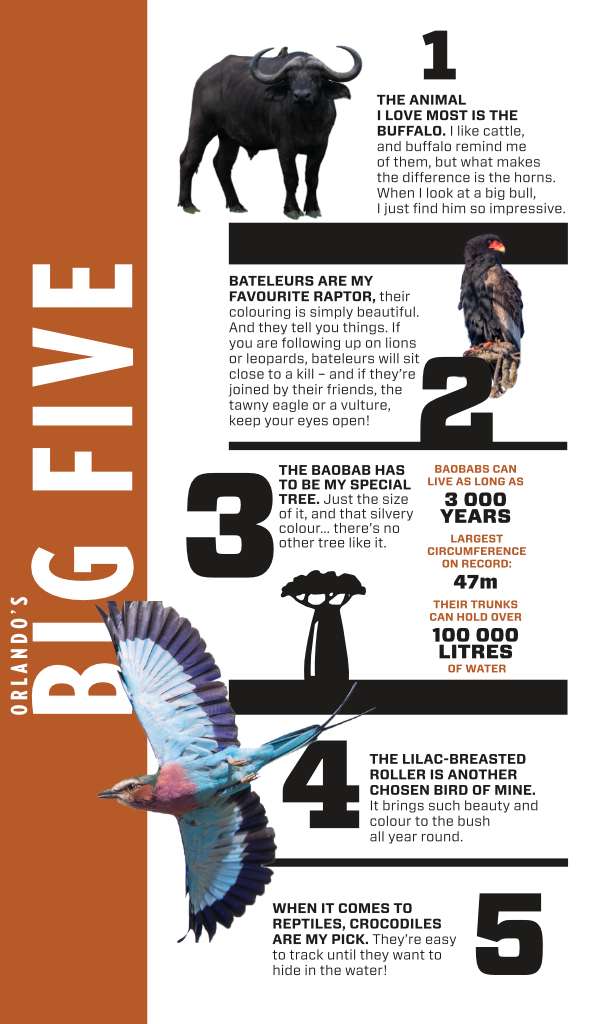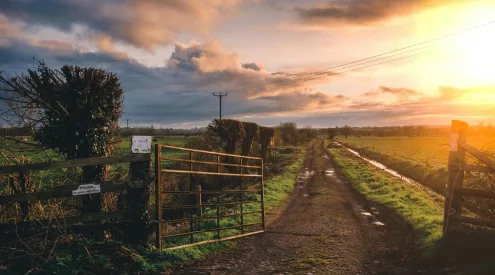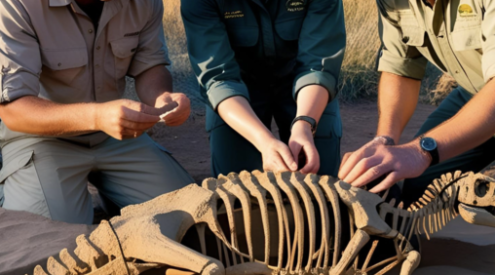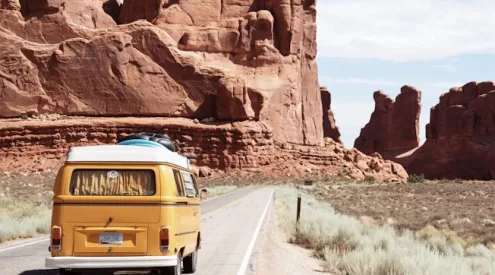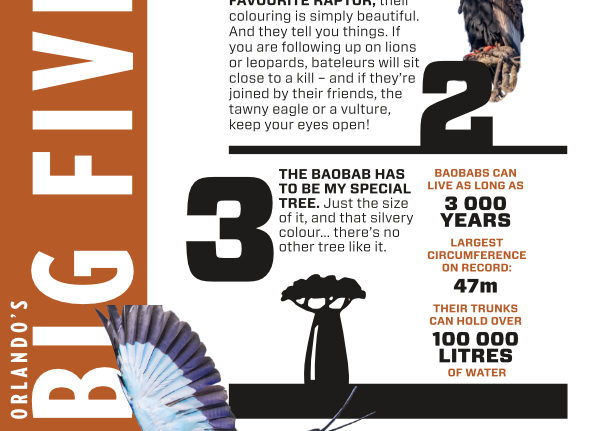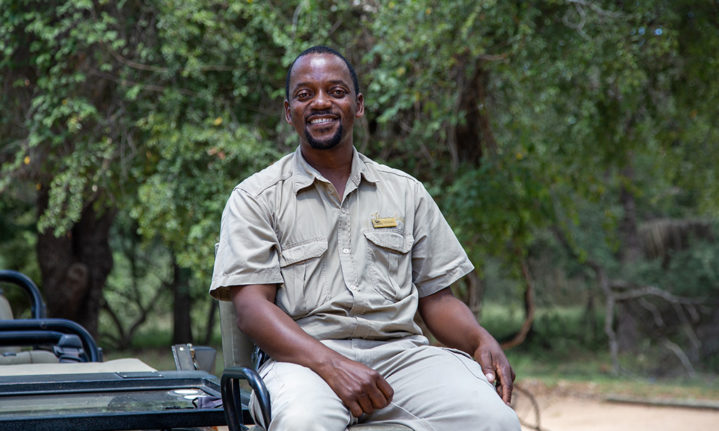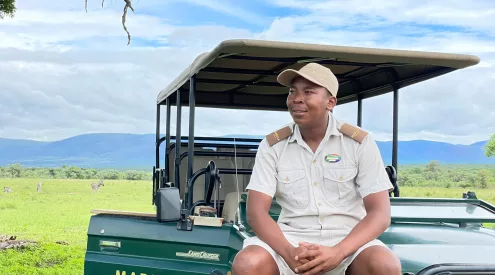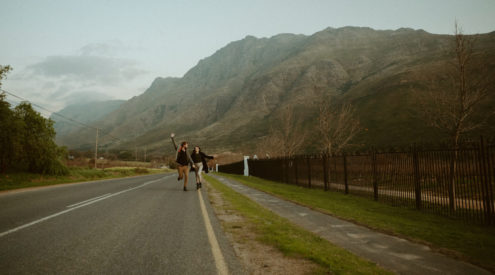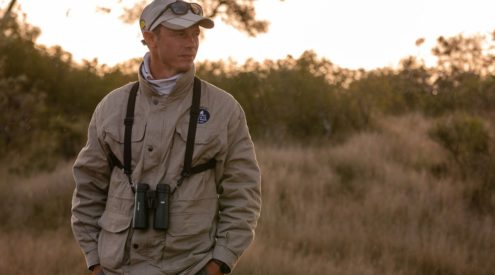Orlando Mawelele has been a tracker at Thornybush for nearly 20 years. With an unwavering passion for the bush and a hard-earned wealth of knowledge, he’s just the man you want sitting at the front of your game-drive vehicle.
Interviewed and photographed by Lauren Dold
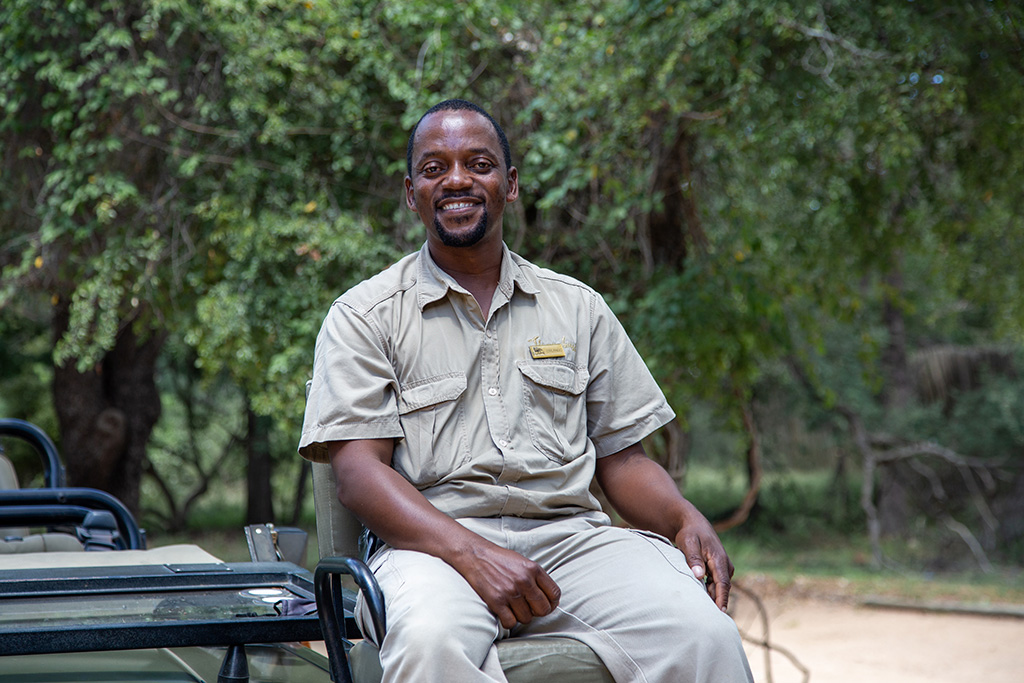
I started at Thornybush doing maintenance and gardening. It was 1998, I was 22 and had been visiting my father who worked there. I remember thinking he was living in a kind of heaven, here in the bush.
I didn’t have a clue about wildlife when I got here, but in 2000 I decided to approach management. I felt I needed to be out in the bush. I needed to be a tracker. Thornybush agreed to train me. It wasn’t easy but I always felt so passionate about learning.
My job isn’t just about tracking animals, it’s about making a connection with people. I started to spend time on the vehicle with guests, learning to see what they see, and learning to interact with them. I’ve been tracking now for almost 20 years and I still love my job. The most rewarding thing is meeting people from so many different worlds – I make new friends all the time!
Sitting on that seat for the first time was scary. I feel comfortable now, but there are times when you can’t anticipate an animal’s behaviour. Just a few weeks ago we found a male leopard that must have been mating with a female, but we didn’t know she was there. She was new to Thornybush territory and in heat, and suddenly she came charging out of thick vegetation, straight towards us. When she was about five metres away, she turned and ran past the side of the vehicle, then she charged again. I admit, my heart was beating very, very fast!
The leopard has to be the most difficult animal to track, because they are so often alone. To track elephants is easy, especially a big herd. It’s the same with other herbivores like rhino, buffalo and antelope.
Besides following spoor, you need to use all your senses when tracking. If you’re on a drive, sometimes you need to turn off the vehicle and listen. Being on foot helps a lot because you can hear things like impala or kudu alarm calling, alerting you that there is a predator ahead. Smell is also very important. You can smell fresh scat, or the telltale popcorn smell of a leopard marking its territory, which can tell you a lot about the direction it’s moving and how far away the animal is.
Orlando’s Big Five
